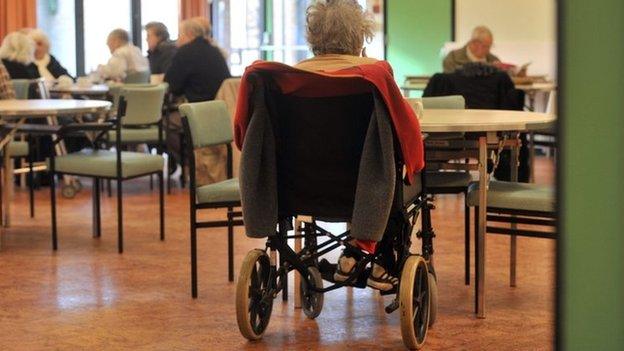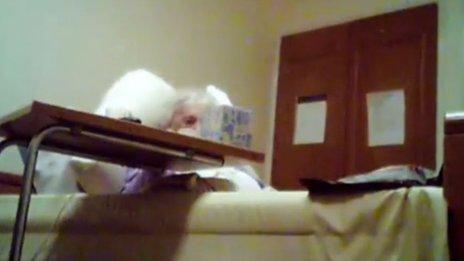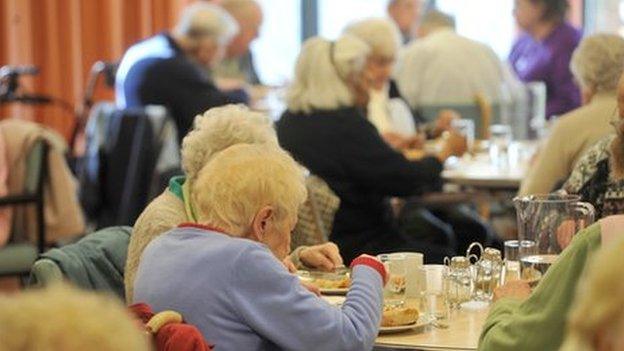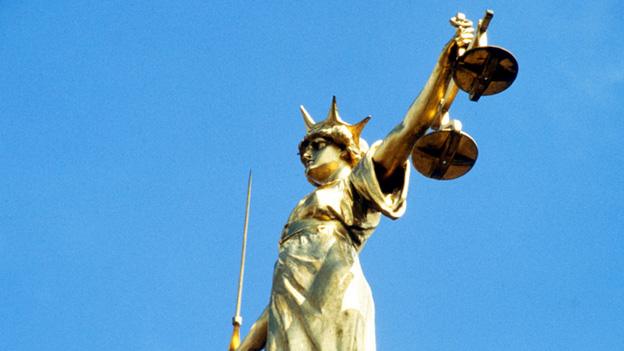Covert care camera guidance approved by Care Quality Commission
- Published

Guidance for people who install hidden cameras to check on standards of their own or a relative's care has been approved by the Care Quality Commission (CQC).
The information covers the issues of privacy and dignity that should be considered before taking the step of using a covert camera.
The guidance is expected to be published in the new year.
The care regulator says it neither encourages nor discourages camera use.
It added that it does look at footage which is brought to its attention.
Information is also being published for care providers on what they need to take into account if they are thinking of installing hidden or visible cameras in their homes.

Sensitive issue

Yvonne Grant's family hid a camera in her care home room
Alison Holt, BBC social affairs correspondent
For families that decide to put in a secret camera to check on the care of someone they love, it is usually a last resort - a step taken when they feel their concerns have been ignored.
The aim of the guidance approved by the the Care Quality Commission is to encourage people to think about issues such as the dignity and privacy of the people who may be filmed.
But the poor care highlighted in programmes like the BBC's Panorama: Behind Closed Doors also shows why some families take such a drastic step.
Yvonne Grant's family put a camera into her room when, despite their complaints, the 98-year-old's care didn't improve.
That hidden camera showed Yvonne calling for a nurse 321 times when she needed the toilet. It was over an hour before anyone came to check on her.
Once the home was presented with that evidence change happened.
Those were the last months of Yvonne Grant's life and the challenge for the care sector is to give families like hers confidence that they will be listened to when they first raise concerns.

The CQC canvassed views over the past year from a range of groups, including people who use care services, carers, care providers, and staff.
Andrea Sutcliffe, chief inspector of adult social care at the CQC, said the use of hidden and public cameras was "really sensitive issue" which provoked "a huge range of debate and opinion".
"The information we will publish for providers makes clear the issues we expect them to take into account - for example, consulting with people using the services and staff - if they are considering installing hidden or public cameras," she said.
'Terrible cruelty'
Ms Sutcliffe added that surveillance should not be seen as "the only way to ensure people are receiving safe, high-quality and compassionate care".
"We need enough staff, properly trained and supported who really care to ensure people get the services they have every right to expect."
Nadra Ahmed, chairman of the National Care Association, which represents care providers, said it was "quite sad" that covert surveillance was being discussed and it was "really disappointing" that the CQC had "pursued this course".
"I think the terminology makes it very sinister in that we're trying to do something that other people don't know about, and it doesn't in any way demonstrate CQC's belief that we are a partnership in delivering care and support," she said.
'Extremely difficult'
Care minister Norman Lamb said cameras had helped to expose "terrible cruelty and neglectful care".
He said: "Decisions about using surveillance are extremely difficult - there is always a balance to be struck between protecting people and respecting their right to privacy - but this information will help families to make the right choice for them.
"We are committed to preventing poor care from happening in the first place and have introduced tougher standards for inspecting care services as well as measures to shut down those that aren't up to scratch."
HC One, which runs care homes, said it had consulted 12,000 residents, relatives and staff and found 87% of relatives wanted visible cameras in care homes - but just 47% of residents agreed.
"The results of our consultation are essential to create a proper public debate on the use of cameras," said HC One chairman Dr Chai Patel.
- Published10 November 2014

- Published14 November 2014
